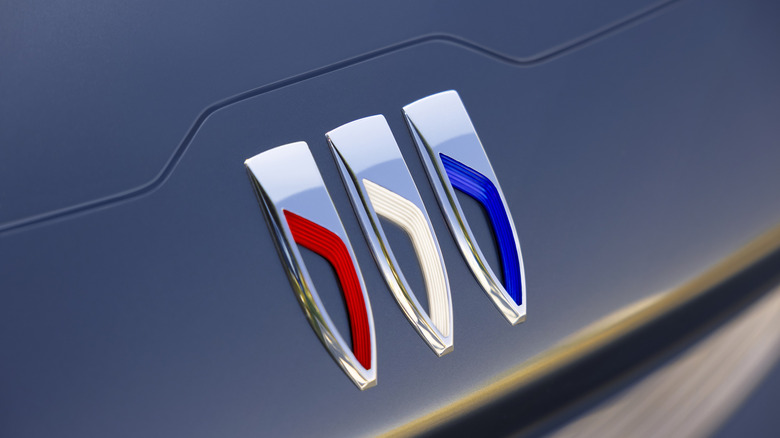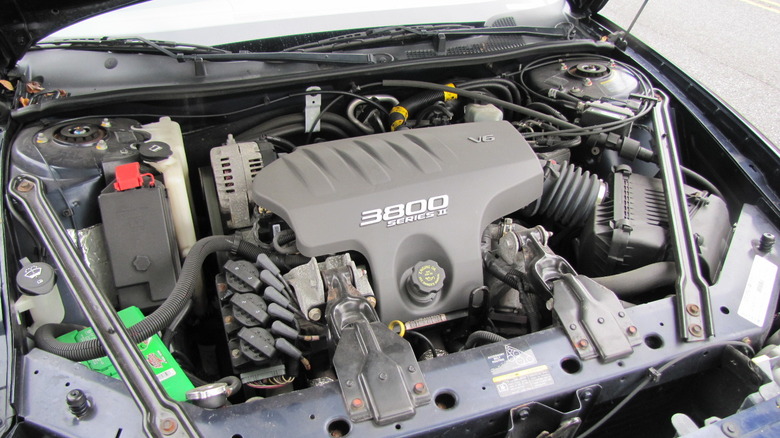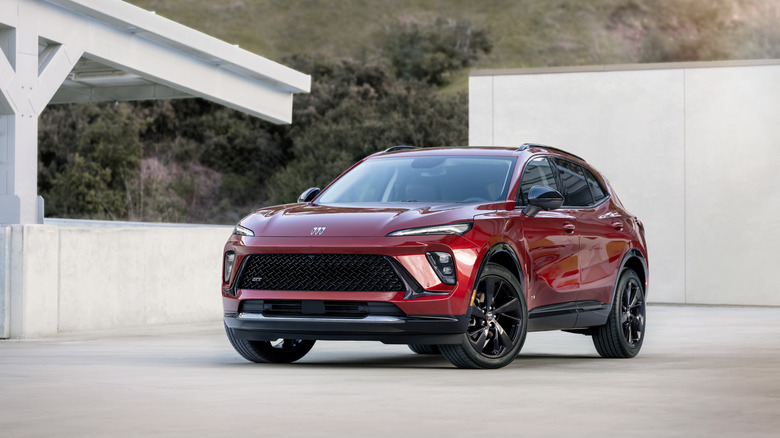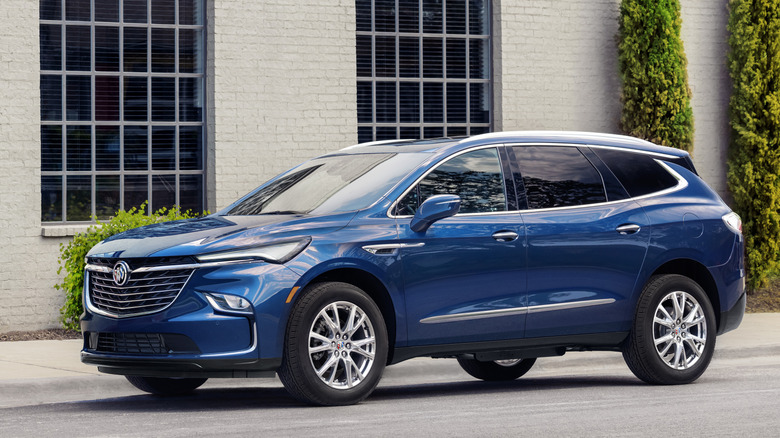Are Buicks Reliable? Here's What Drivers Have To Say About The Brand
Typically, when people picture "reliability," they think of the usual Japanese suspects — Toyota, Lexus, Honda, and so on. Buicks don't often enter the discussion, probably because it's not that prominent a manufacturer these days. Buick also only offers four models, all of which are crossovers or luxury SUVs: the Envista, Envision, Encore GX, and Enclave. Each of these vehicles is based on shared GM platforms; for instance, the Enclave is just a Chevrolet Traverse in a business suit, owing to GM's ownership of Buick. Theoretically, then, they should all be roughly as reliable (or unreliable) as their Chevrolet sister cars, right? For the most part, yes.
Buick has a proud history of reliability, one that continues into the present day. J.D. Power, for instance, ranked the Envista and Encore GX as the top two most reliable small SUVs of 2025, with other GM cars on the same platforms a couple of places down. Moreover, classic Buicks enjoy similar reputations as well; take the famous Buick 3.8 V6, for example, an engine that's regarded as one of the best V6 engines ever produced owing to its incredible longevity, simplicity, and durability.
Like any brand, Buick has standout models as well as its stinkers. Generally, modern Buicks are as reliable as any other GM product — that is, they'll likely last well over 100,000 miles with regular maintenance. The further back you go, the more varied it becomes; classic car reliability has more to do with maintenance, so let's focus on more measurable examples, be they good or bad, and discover why Buicks may or may not be reliable.
The most reliable Buick models of past and present
First and foremost, the 3.8-liter V6 represents one of the hallmarks of GM's engineering. Like other extremely reliable engines such as the Jeep 4.0-liter and Ford 300 straight-sixes, the 3.8 is a simple design dating back around six decades, to a time when fuel injection was considered a specialist item. These designs were heavily refined over the years, to the point where owners regularly report odometer readings in the multiple hundreds of thousands of miles in 3.8-liter-equipped Buicks such as the LeSabre and Lucerne. That said, these engines do have their issues; many owners, for instance, complain about the transmissions to which they were mated, as well as the engine's plastic intakes.
In the eyes of owners, modern Buicks tend to get outshined by older 3.8-equipped models in terms of reliability, but that doesn't mean new Buicks are necessarily troublesome. Granted, some are mixed bags, like the modern Enclave, which RepairPal rates 3.0 out of 5 stars, citing an 18% chance of an unscheduled "urgent" repair. Other models, like the Buick Encore, have a better reputation, with RepairPal rating the SUV an "excellent" 4.0 out of 5 stars — although it's still only fifth out of the seven small SUVs it's rated.
Other expert opinions indicate that modern Buicks are more reliable than others in their class. For instance, a recent J.D. Power study ranked Buick as the second-most reliable brand behind Lexus, out of a total of 31 brands. This means that Buick beat out the likes of Toyota, Mazda, and Cadillac by a significant margin, showing that GM has its act together, at least as far as Buick's concerned.
Are there any to avoid at all costs?
Buick has its hits and misses, but not many models stick out as being perennially unreliable. That said, there is a general era to avoid, with the early-to-mid 2010s seemingly representing a downturn in the reliability and quality of Buick's SUVs and crossovers. Two notable examples are the mid-2010s Buick Encore and the late-2000s to mid-2010s Enclave, all of which were subject to recalls and plagued by engine problems.
Classic Buick engines aren't safe bets, either, because the company's various versions of the 455-CI V8 are alternately considered among the weakest and finest big-block V8s ever produced. Therefore, it's imperative to research the specific engine in any old Buick, especially if you plan to daily drive your classic Buick. Here's a list of some particularly problematic Buicks to avoid.
The consensus around the Internet is that Buicks represent some of the best value-for-money cars in terms of sheer reliability. Even oddball models like the exceptional GNX are reliable for what they are (they have 3.8s, after all, just a high-performance turbocharged variant). Like any other car, then, Buicks need regular maintenance and careful driving to ensure longevity. These aren't sports cars, nor are they built for extreme levels of abuse. Some particularly durable engines exist, the highlight being the 3.8, but even those models can have issues elsewhere.
Our methodology
The Internet is full of hearsay and unverified opinions, so we focused on a more generalized, agreed-upon consensus for some of the best and worst Buicks made. With some engines, like the 3.8, information is readily available detailing their reliability, but other engines have decidedly fewer expert opinions about them. For these models, we scoured dozens of forums, owners' hubs, and more, to seek out opinions from long-term owners and those familiar with GM platforms.
While this article briefly addresses classic cars, we didn't focus on discussing their reliability too much. Issues like rust, perishable parts like rubber hoses and bushings, and more all affect these models more drastically, and such problems may have little to do with a car's inherent dependability. When deciding whether such a car will be reliable, always take it for a test drive.
We've also taken into account expert opinions in our assessments, in addition to reports from outlets like J.D. Power and other trusted publications. That said, there's no way that we could cover the full breadth of Buick models, and prospective owners should be prudent to research specific years and configurations before committing to any purchase.



